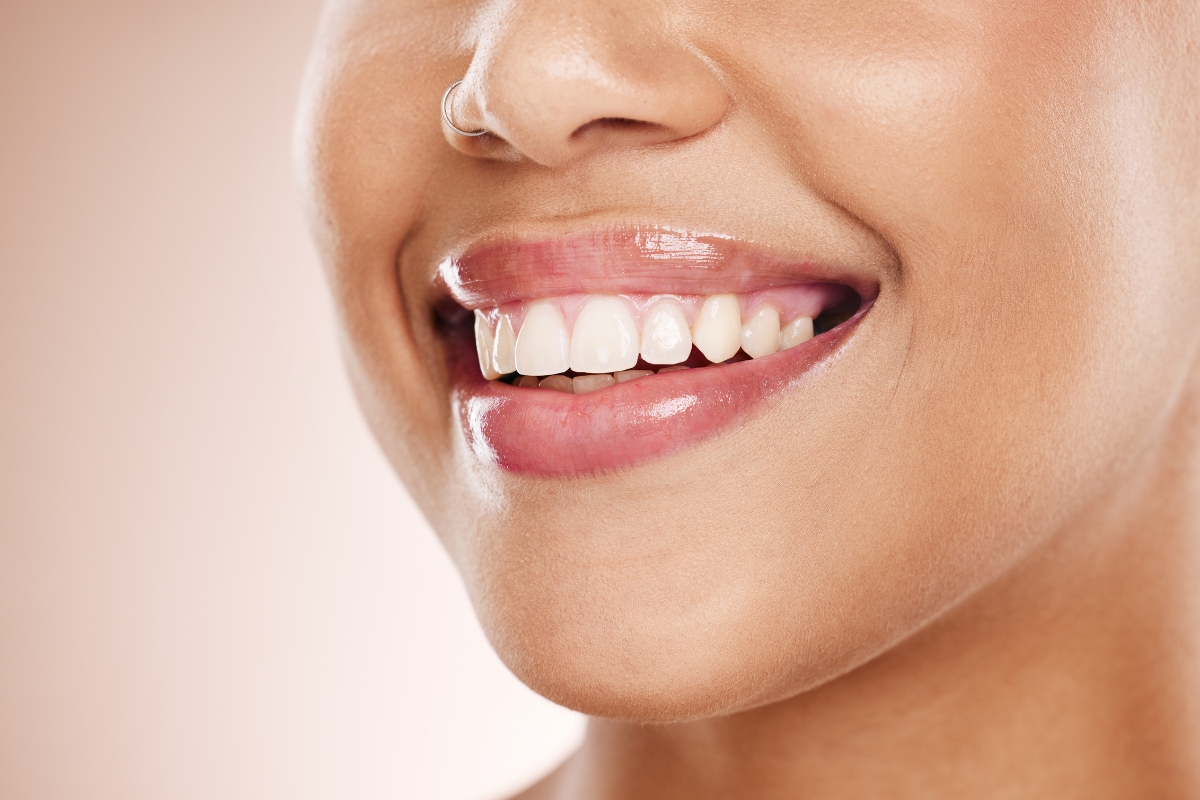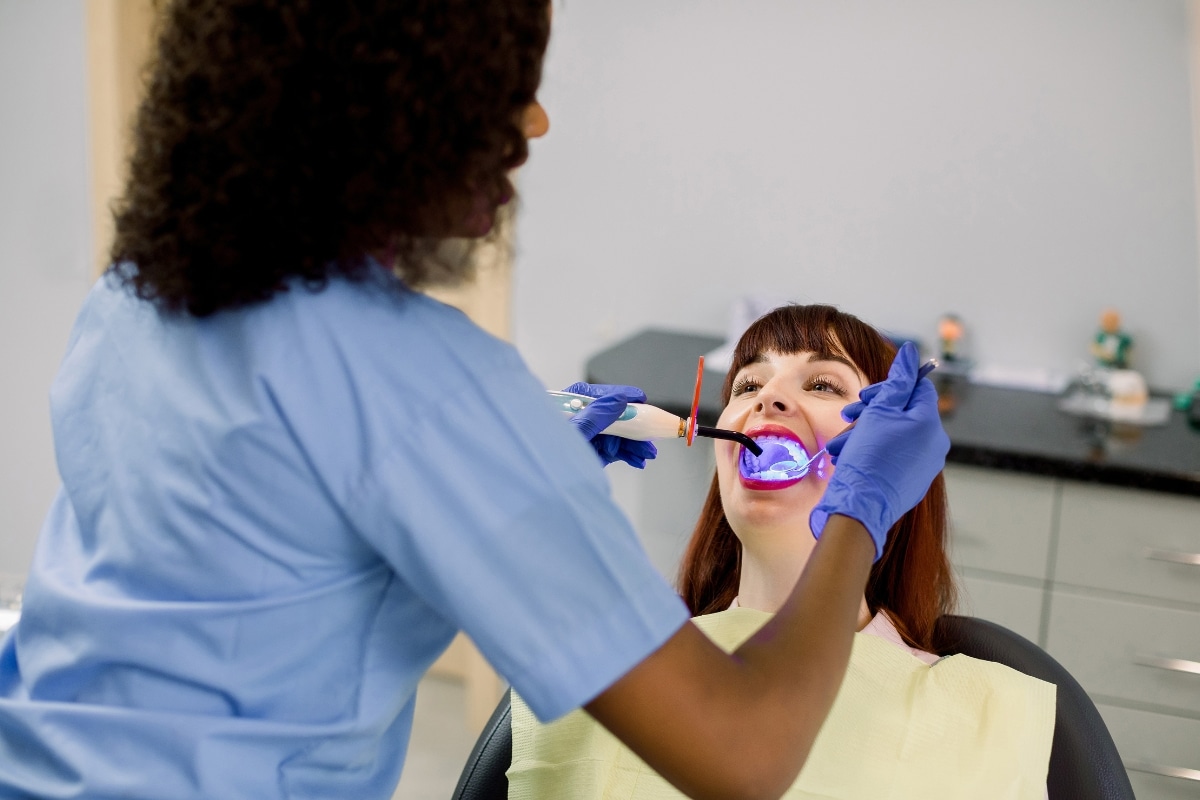Signs You May Need A Deep Cleaning (Even If You Brush Daily)

Maintaining good oral hygiene is vital for a healthy smile. Most of us understand the importance of brushing and flossing daily, but sometimes even the most diligent brushers may require more than just a standard cleaning.
Deep cleaning, also known as scaling and root planing, can help remove tartar and plaque buildup below the gum line, addressing issues that daily brushing alone cannot manage.
This blog will explain the signs that indicate you may need deep cleaning, even if you think your oral care routine is sufficient.
Deep Cleaning: A Brief Overview
Before diving into the signs that you may need a deep cleaning, it’s essential to understand what the procedure entails. Unlike regular cleanings that focus on the surfaces of your teeth, deep cleaning targets the areas beneath the gums. Here’s what to know:
- Scaling: This process removes tartar and plaque from the tooth surfaces and below the gum line using specialized instruments.
- Root Planing: This smooths out the surfaces of the roots to help the gums reattach to the teeth.
Deep cleaning is often recommended when there are signs of gum disease or significant plaque buildup. Regular cleanings and exams are essential to maintaining optimal oral health, as they help prevent the onset of gum disease and detect any issues early on.
Signs You May Need a Deep Cleaning Even After Brushing Daily
1. Bleeding Gums
One of the most common signs that you may need a deep cleaning is bleeding gums. While occasional bleeding when brushing or flossing may not be alarming, frequent bleeding can indicate gingivitis or periodontal disease. Other symptoms that often accompany bleeding gums include:
- Swollen or tender gums.
- Persistent bad breath.
- Changes in gum color (dark red or purple).
If you notice any of these symptoms, it’s crucial to see a dentist as soon as possible.
2. Bad Breath
Also known as halitosis, persistent bad breath can be a sign that bacteria are thriving below your gum line. While brushing your teeth regularly can help manage bad breath, it may not eliminate the problem if there’s tartar buildup. Bacteria trapped in the pockets around your teeth can lead to foul odors that brushing alone can’t resolve.
Quick Tips to Manage Bad Breath:
- Drink plenty of water to stay hydrated and help wash away food particles.
- Use mouthwash specifically designed to combat bad breath.
- Chew sugar-free gum to stimulate saliva production.
3. Gum Recession
Gum recession occurs when the gum tissue pulls back from the teeth, exposing more of the tooth or its roots. This condition can create pockets that harbor plaque and bacteria, which can further lead to gum disease. Signs of gum recession include:
- Sensitivity to hot or cold.
- Visible lengthening of teeth.
- Darkened gum line.
If you notice your gums receding, a deep cleaning may be necessary to prevent further damage and maintain gum health.
4. Loose Teeth
If your teeth feel loose, it may indicate a more severe problem. Loose teeth can result from advanced gum disease, which may require deep cleaning to address the underlying issues.
Signs of Loose Teeth:
- Difficulty biting or chewing.
- Increased mobility of individual teeth.
- Pain or discomfort when biting down.
If you’re experiencing any of these symptoms, consult our dentist promptly.
5. Visible Tartar Buildup
While brushing helps remove plaque, it can quickly harden into tartar if not cleaned away. Visible tartar buildup can be a clear indicator that you need a deep cleaning. Signs to look for include:
- Yellow or brown deposits on your teeth.
- The rough texture on the tooth surfaces.
- Difficulty removing plaque with brushing.
If you see tartar on your teeth, it’s time to schedule a dental cleaning to prevent further complications.
6. Chronic Tooth Sensitivity
If you experience chronic tooth sensitivity, particularly to hot or cold temperatures, it might be a sign of gum disease or exposed roots. As gums recede, the sensitive roots can be exposed, leading to discomfort.
What To Look For?
- Pain when consuming hot or cold foods and drinks.
- Discomfort while brushing or flossing.
- Pain that lingers after exposure to temperature changes.
Chronic sensitivity is a signal that your teeth and gums need attention, and deep cleaning may help alleviate the issue.
7. Changes In Your Bite
If you notice changes in your bite or how your teeth fit together, this could indicate that your teeth are shifting due to gum disease or bone loss. These changes may result from a lack of support from the gums and bones surrounding your teeth.
Signs of Bite Changes
- Difficulty closing your mouth.
- Teeth appear misaligned.
- Discomfort when chewing.
Consult our dentist for a thorough evaluation if you observe these changes.
Prevention is the way!
While it’s essential to recognize the signs that you may need a deep cleaning, prevention is always better than cure. Here are some tips to maintain healthy gums and teeth:
- Brush Twice regularly: Spend at least two minutes brushing and using fluoride toothpaste.
- Floss Everyday: Plaque and food particles in between teeth and along the gum line are eliminated by flossing.
- Use Mouthwash: An antimicrobial mouthwash can help reduce bacteria in the mouth and freshen your breath.
- Regular Dental Visits: Schedule dental check-ups and cleanings at least twice yearly to catch any issues early on.
- Healthy Diet: A balanced diet low in sugars can help minimize plaque buildup.
Even with diligent brushing and flossing, certain signs indicate that you may need a deep cleaning. If you notice symptoms like bleeding gums, persistent bad breath, or visible tartar buildup, it’s time to consult our dentist for a thorough evaluation.
Deep cleaning can help restore your oral health and prevent further complications, ensuring that your smile remains bright and healthy.
Don’t forget, maintaining good oral hygiene is a lifelong commitment. Being proactive can save you from more extensive treatments in the future. Don’t hesitate to prioritize your dental health — a beautiful smile is worth it!
Recent Posts

Why Won’t My Teeth Stay White? Dr. Maconi on Maintenance for Havertown Residents

What Happens if You Delay Filling a Cavity? Dr. Maconi on Preventing Root Canals

What Home Care Tips Can Help Relieve TMD Discomfort in Havertown?

Minimizing Sensitivity: Why Professional Teeth Whitening Treatment is Safer Than DIY Kits


